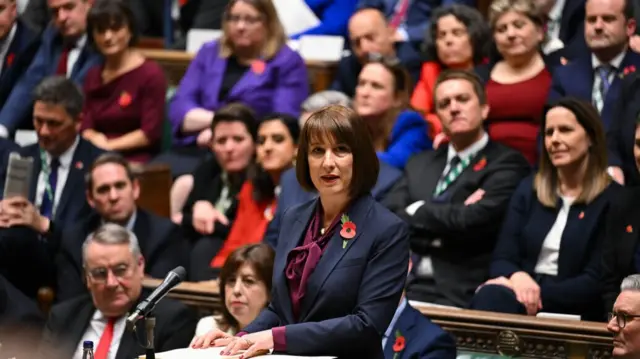The Chancellor’s Budget: A Double-Edged Sword for Workers
This week, Chancellor Rachel Reeves delivered a Budget laden with tax increases that she warns could dampen wage growth for many workers across the UK. During an interview with the BBC, Reeves acknowledged that her tax-raising measures might necessitate businesses to either absorb the costs associated with National Insurance hikes or substantially limit wage increases, stating plainly, “I said that it will have consequences.”
Budget implications for businesses and workers.
The government’s plan is to raise approximately £25 billion through these measures. However, the Institute for Fiscal Studies (IFS) presents a more conservative estimate, projecting only £16 billion will be collected, largely because businesses are likely to curtail wage growth to maintain profitability. It’s a classic example of how governmental fiscal strategies can impact ordinary workers, shifting burdens away from corporate responsibilities and placing them firmly on the shoulders of employees.
Conversely, during a recent visit to a West Midlands hospital with Reeves, Prime Minister Keir Starmer expressed optimism about NHS funding in the Budget, branding it a necessary “down payment” for the future of the health service. Yet his remarks reveal a stark reality; as he pointedly noted, “staff workload will likely go up, not down.”
Tax Rises: A Temporary Solution?
The Budget represents Labour’s first foray into fiscal policy in 14 years, featuring a staggering total of tax rises estimated at £40 billion aimed at supporting the NHS and other public services. The key takeaway is clear; workers will bear the brunt of these increases, with the Office for Budget Responsibility (OBR) estimating that over three-quarters of the National Insurance hike will come from employee incomes. The chilling reality is that while profits are expected to absorb a mere quarter of these costs, businesses will offset their expenditure by escalating prices and trimming wage increases, further eroding workers’ purchasing power.
The impact of National Insurance increases on workers.
As noted by Caroline Abrahams, Director of Age UK, the Budget has left many vulnerable pensioners in disarray. In what she termed a “massive disappointment,” Age UK had anticipated protective measures for older adults, particularly those depending on dwindling winter fuel allowances. Reflecting a stark truth for many households, Abrahams lamented, “it comes to something when the best policy option older people on tight budgets now have left is to hope and pray for a mild winter.”
Towards a Clean Energy Future
The Budget also aspires to reshape the UK into a “clean energy superpower.” Highlights include investments amounting to £2.3 billion for hydrogen production, £2.7 billion earmarked for the Sizewell nuclear plant, and an additional £100 million allocated for Great British Energy projects. This pivot towards renewable energy sources is not merely a trend but a foundational change in how the UK plans to face the climate crisis while fostering economic resilience.
Investments in renewable energy initiatives.
Paul Johnson, director of the Institute for Fiscal Studies, has voiced significant concerns regarding these tax-and-spend strategies, emphasizing that while ReeVes’ fiscal plan aims to bolster public services, this comes with inherent risks to economic performance. The prospect of tax hikes affecting businesses can lead to stunted growth and reduced job creation, which could spiral into a broader economic slowdown.
Emphasizing Economic Responsibility
During a recent interview, Reeves reflected candidly on the budget’s necessity, stating, “This is not the sort of Budget we would want to repeat, but this is the Budget that is needed to wipe the slate clean…” Her acknowledgment of the difficult decisions required suggests a profound understanding of the current economic climate, a sentiment echoed by workers and analysts alike who recognize the complexities involved in balancing fiscal responsibility with the needs of citizens.
 Chancellor Rachel Reeves discusses the impacts of the Budget.
Chancellor Rachel Reeves discusses the impacts of the Budget.
Conclusion: Navigating Uncertain Waters
As we navigate the ramifications of this Budget, it’s imperative that both the government and businesses examine their roles in ensuring the economic well-being of workers. The forthcoming tax increases and their potential effects on wage growth and public services could have lasting impacts on the populace’s overall economic health. As the debate continues, one fundamental question remains: how does a country balance the need for robust public finances with the pressing need for wage increases that reflect the true cost of living?
This cautionary tale is not just about numbers and policy. It’s about lives, families, and futures caught in the crosshairs of fiscal decisions. For many, the stakes could not be higher.










